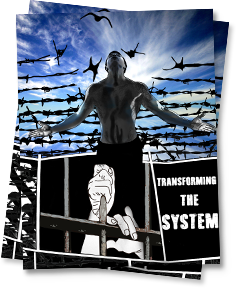Eliminating unnecessary pre-trial detention
A fair trial is premised on the guarantee of access to the courts and the right to a fair hearing. Studies show that pre-trial detention has a profound impact on whether an accused will be convicted of a crime. This is especially the case for indigent accused persons. Pre-trial detention has collateral consequences on those being detained before trial or even before a first appearance. Every year, of the nearly 12 million people booked into jails, mostly for misdemeanors, more than 60 percent are not convicted, and remain largely because they can’t afford to post even small money bond amounts. Even three days in jail can have serious collateral consequences, putting stress on “fundamentals like jobs, housing, and family connections.”
Prosecutors frequently use pre-trial detention to coerce plea agreements from indigent defendants, and research shows that accused persons who are detained pre-trial are exponentially more likely to be convicted of a crime. Eager to leave detention, incarcerated people are often reluctant to wait for trial to prove their innocence. They accept plea deals that permanently entangle them into the criminal system. The purpose of money bail is limited to assuring the defendant’s presence at future court proceedings, but it often serves to keep those without resources detained indefinitely jeopardizing their jobs, families, and well-being. At the same time, the court’s reliance on money bail allows the highest-risk defendants to go free by posting money bail while keeping low risk defendants incarcerated for an inability to pay. Yet, courts routinely impose money bail without regard to a defendant’s resources, the risk the defendant poses, or possible alternative conditions of release, keeping presumptively innocent people incarcerated, sometimes for years.
To remedy this injustice, local, state, and federal legislatures should pass legislative measures that:
- Reform bail practices to encourage release;
- Abolish the use of cash bail;
- Encourage the use of warning and citations rather than arrests;
- Provide court notifications to defendants prior to court dates through pre-trial services;
- Prohibit for-profit pre-trial agencies;
- Prohibit for-profit transportation for incarcerated individuals;
- Prohibit the use of bail schedules and bail minimums;
- Prohibit the use of compensated sureties where cash bail is still used; instead, allowing defendants to make a deposit directly to the courthouse;
- Require individualized risk assessments for bail determinations, which favor a bail determination based on a defendant’s actual risk, relying upon a data assessment that mitigates biases embedded in the risk assessment tools and that is open to public analysis and critique;
- Require that defendants be provided with counsel prior to bail determinations;
- Expand pre-trial services programs and adequately fund these programs;
- Reform existing legislation, including the federal Bail Reform Act, in compliance with these recommendations;
- Lower bail to an amount that factors the finances of the accused;
- Incentivize restorative justice programs, including community prosecution programs and community courts that do not result in a criminal conviction as alternatives to incarceration;
- Establish time limits to allow the expeditious processing of arrested individuals with real consequences for courts that fail to meet these limits;
- Establish special courts dedicated to addressing court backlogs;
- Require that police interrogations are electronically recorded “during the time in which a reasonable person in the subject’s position would consider himself to be in custody and a law enforcement officer’s questioning is likely to elicit incriminating responses.” If video recording is used, the camera should record both the interrogator and the person being interrogated;
- Pass the No Money Bail Act of 2016, H.R.4611, which seeks to eliminate the use of monetary bail; and
- Encourage community supervision and alternative conditions of release where suitable.
The judiciary and judicial ethics committees and organizations should encourage bail determinations that ensure that individual defendants are not being incarcerated for poverty and are instead being assessed for actual risk.
Judicial ethics committees and organizations should:
- Educate judges about the value of individualized risk assessments in determining defendant flight risk, and encourage judges to use tools that mitigate against racial biases;
- Educate judges on their role in contributing to the criminalization of poverty when improper bail determinations are made;
- Establish court-based risk-assessment programs that rely upon data that is open to public critique; and
- Encourage the use of alternative conditions of release by providing bench cards that list suitable alternatives to manage risk.
Prosecutors and prosecutor organizations should ensure that prosecutors are not employing pre-trial detention as a coercive and potentially unethical trial strategy.
Community members, advocates, and activists should partner with legal aid organizations and other indigent defense organizations to monitor prosecutorial practices and demand that prosecutors who frequently misuse bail to coerce guilty pleas be disciplined for ethics violations.




